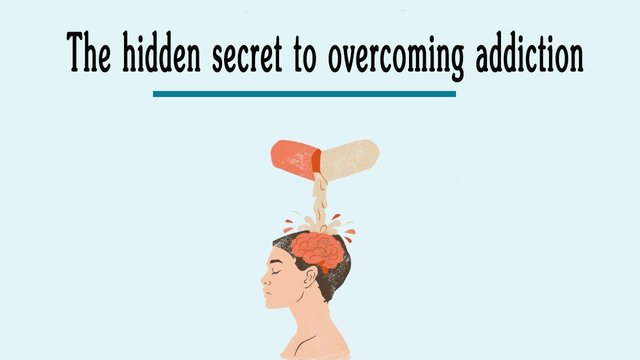The hidden secret to overcoming addiction
The hidden secret to overcoming addiction

Addiction is a complex and chronic disease that can affect anyone, regardless of age, race, gender, or socioeconomic status. It is characterized by a compulsive need to use a substance or engage in a behavior, even when there are negative consequences. Although there is no one-size-fits-all approach to overcoming addiction, there are a number of evidence-based strategies that can help individuals achieve recovery.
01- Understanding the addiction cycle
The first step to overcoming addiction is understanding the addiction cycle. This cycle is characterized by four stages:
• Lust: an intense desire to use a substance or practice a behavior.
• Binge/use: This is the act of using a substance or engaging in the behavior.
• Poisoning: It is the state of being exposed to the influence of a substance or behavior.
• Withdrawal: This is the experience of negative symptoms, such as cravings, anxiety, and depression, that occur when the substance or behavior is no longer used.
Once you understand the cycle of addiction, you can begin to develop strategies to break it.
02- Create a recovery plan:
A recovery plan is a personalized road map that outlines the steps you need to take to achieve sobriety and maintain long-term recovery. It should include the following elements:
• Goal setting: Define what recovery means to you and set specific, measurable, achievable, relevant, and time-bound goals.
• Identify Triggers: Triggers are things that make you want to use or engage in addictive behavior. Identify your triggers and develop strategies to deal with them.
• Build a support network: Surround yourself with supportive people who believe in you and your recovery. This may include family members, friends, therapists, and other people in recovery.
• Seek professional help: If you need additional support, consider seeking professional help from a therapist or counselor who specializes in addiction treatment.
03- Evidence-based strategies to overcome addiction:
There are a number of evidence-based strategies that can help you overcome addiction. These include:
• Cognitive behavioral therapy (CBT): Cognitive behavioral therapy is a type of therapy that helps you change your thoughts and behaviors related to your addiction.
• Motivational Interviewing MI: It is a type of therapy that helps you identify and overcome barriers to change.
• Medication-Assisted Treatment: MAT is a combination of medications and therapy that can be effective in treating certain types of addiction, such as opioid addiction.
• 12-Step Programs: 12-step programs, such as Alcoholics Anonymous and Narcotics Anonymous, are self-help groups that provide support and accountability to people in recovery.
04- Recovery is a journey, not a destination:
*** Conclusion ***
Addiction recovery is a journey, not a destination. There will be setbacks and challenges along the way, but it's important to remember that you are not alone. There are people who care about you and want to see you succeed. If you relapse, don't give up. Keep trying, and eventually, you will reach your recovery goals.
By following these tips, you can write SEO-friendly articles about addiction that will help people find the information they need to overcome this disease.
By: A. Kheireddine Louglaib